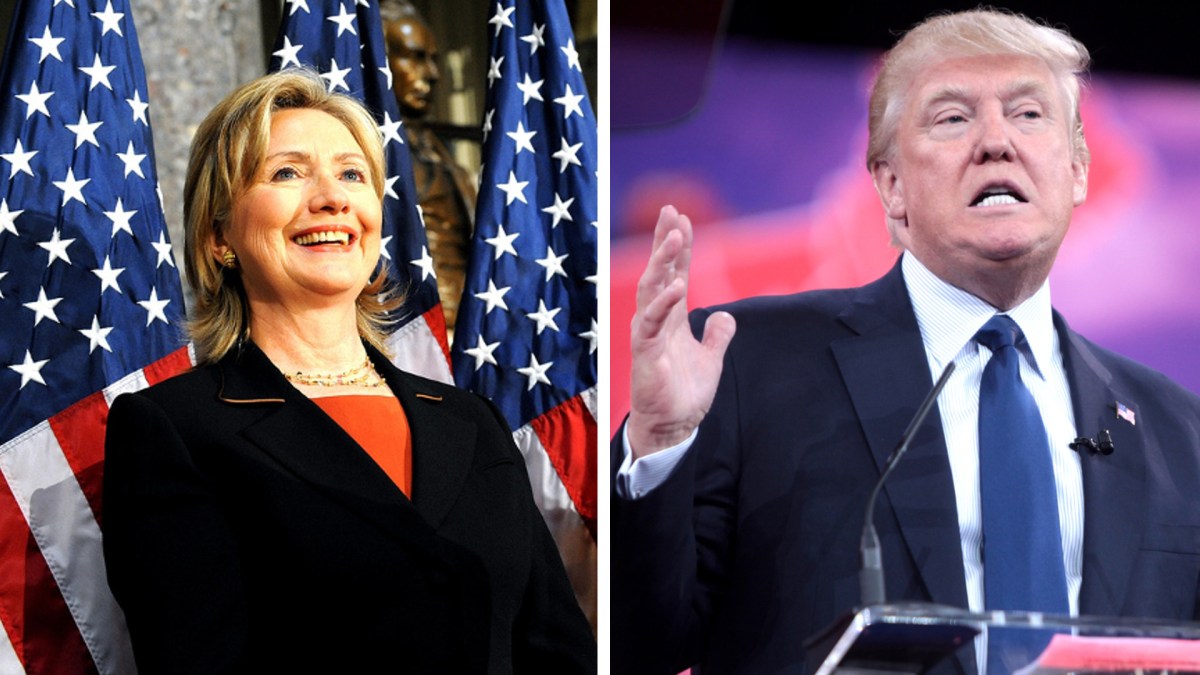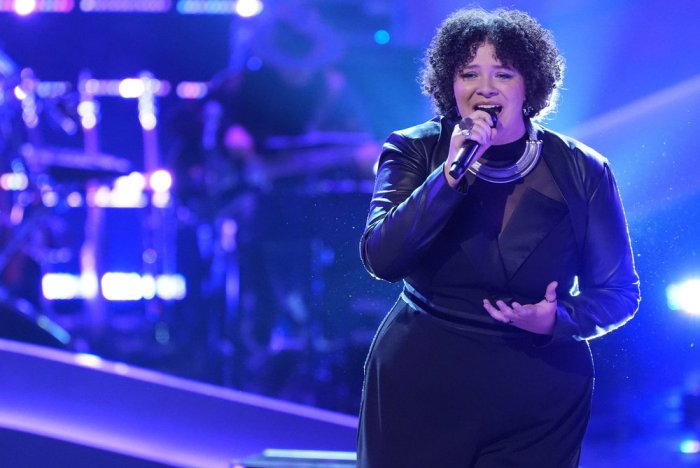By Rashed Mian and Christopher Twarowski
The 2016 presidential race between Republican Donald Trump and Democrat Hillary Clinton has so far been characterized by so much tasteless rhetoric and classless behavior (sprinkled with the occasional made-for-TV scandals) that it’s more akin to a subpar episode of The Real Housewives than a contest for the most powerful position in the free world.
Scary, for sure—and really, really, really infuriating.
Both candidates have their fair share of things to be embarrassed about, some of which probably should disqualify them from seeking the highest office in the land, but of course, they’re not embarrassed, and will not leave the race, no matter how gruesome it gets. Instead, they’ll twist these moments into opportunities to double-down on attacks against each other.
The first presidential debate at Hofstra University on Sept. 26, moderated by NBC Nightly News anchor Lester Holt, became infamous for The Donald’s #TrumpSniff, as Twitter users dubbed it, his support of unconstitutional stop-and-frisk policing, and incessant interruption of Holt. Clinton, who at first didn’t seem to know how to respond to her opponent’s initial aggressiveness but eventually won points by simply letting Trump’s vitriol and nonsensical rants bury himself, simply solidified her reputation among detractors as an annoying, emotionless stereotypical politician representative of everything most people loathe about Washington and the current state of U.S. elitist bureaucracy.
Related: Clinton & Trump: A Plague On Both Your Houses
The follow-up battle at Washington University in St. Louis on Oct. 8, emceed by ABC News‘ Martha Raddatz and CNN’s Anderson Cooper, went down in the books for, among other must-watch-Jerry Springer moments: Trump’s pre-game parading of women who claimed sexual abuse against former president Bill Clinton, his creepy brooding behind Hillary Clinton as she answered questions and he waited for a chance to rebut whatever she said, and his assertion that he’d arrest her if he ever won the Oval Office. Clinton, for her part, again exuded the stoic stuffiness of pretentious establishment puppet, though compared to Trump’s sniffling, snorting, huffin’ and puffin’ definitely came across as less likely to start a nuclear war—and somewhat frightened at the prospect of a special investigator digging into her deletion of tens of thousands of State Department emails, another of Trump’s if-I-became-prez promises.
Both dodged questions they didn’t feel like answering and continued to speak way past their allotted times (we recommend moderators simply turn the microphones off whenever that happens).
Tonight’s debate at the University of Nevada, Las Vegas, broadcasting at 9 p.m. ET and moderated by Fox News Sunday host Chris Wallace, will no doubt top the previous two showdowns in its amount of mudslinging, accusations, character assassinations, conspiracy assertions and down-and-out reality TV one-liners that have absolutely nothing to do with actual policy or future administration objectives. You know—the stuff that you’d actually hope, and expect to hear from those who’ll eventually be creating and implementing such things, aka the concrete laws of the land that will ultimately affect our family’s lives.
As a precursor to this third installment of what’s sure to be one of the most ludicrous throw-downs in presidential debate history, we thought we’d come up with a short list of the 10 topics “Hitler 2.0” and “Killary,” among other names their respective detractors call them, will most likely—and most likely not—discuss. Officially, the topics publicly stated to be addressed include: “Debt and entitlements,” “Immigration,” “Economy,” “Supreme Court,” “Foreign hot spots” and “Fitness to be President.” But you know better than that.
5 Things Donald Trump & Hillary Clinton Will Likely Discuss
1. Sexual Allegations
Whether it’s Trump’s sexist remarks championing sexual abuse against women, or the past infidelities of Bubba, sex will most definitely be on the docket of discussion during tonight’s presidential faceoff. Why? Because this is a presidential debate, of course! No need to discuss meaningful topics or issues. Trump’s infamously vulgar “locker room” advice to recently fired NBC Today show host Billy Bush that “You can grab ’em by the p@#$y. You can do anything…”—as the two rode a bus with hot microphones to an Access Hollywood appearance in 2005—will undoubtedly be on the talking points menu for Clinton. Melania Trump’s recent description to CNN of her husband’s p@#$y line as “boy talk” (Trump was 59 years old at the time) egged on by Bush will do little to stop Clinton from resurrecting those particular money quotes. Conversely, Hillary’s husband’s sexual indiscretions with former White House intern Monica Lewinsky and model Gennifer Flowers, and his alleged improprieties with Juanita Broaddrick, Kathleen Willey and Paula Jones—who’ve accused him of rape, groping, and sexual harassment, respectively—will most certainly be on Trump’s.
2. Emails
Hillary Clinton’s email correspondences as Secretary of State has been a topic of both previous presidential debates, and it will most certainly be brought up tonight. Clinton, while in that position, used a private email server for official state department communications, allegedly in violation of federal procedures and laws, and allegedly including many that were classified or sensitive in nature. In all, tens of thousands of emails were routed through her personal server, including more than 30,000 which Clinton deemed personal in nature that she allegedly deleted. Trump cited these emails as grounds for him opening an investigation into her should he win the presidency. On March 16, 2016 whistleblower site WikiLeaks.com published a searchable archive for 30,322 emails & email attachments sent to and from Hillary Clinton’s private email server while she was Secretary of State, containing more than 50,500 pages of documents. The FBI, which never charged Clinton, called her use of a private server and she and her staff’s handling of official communications “extremely careless.”
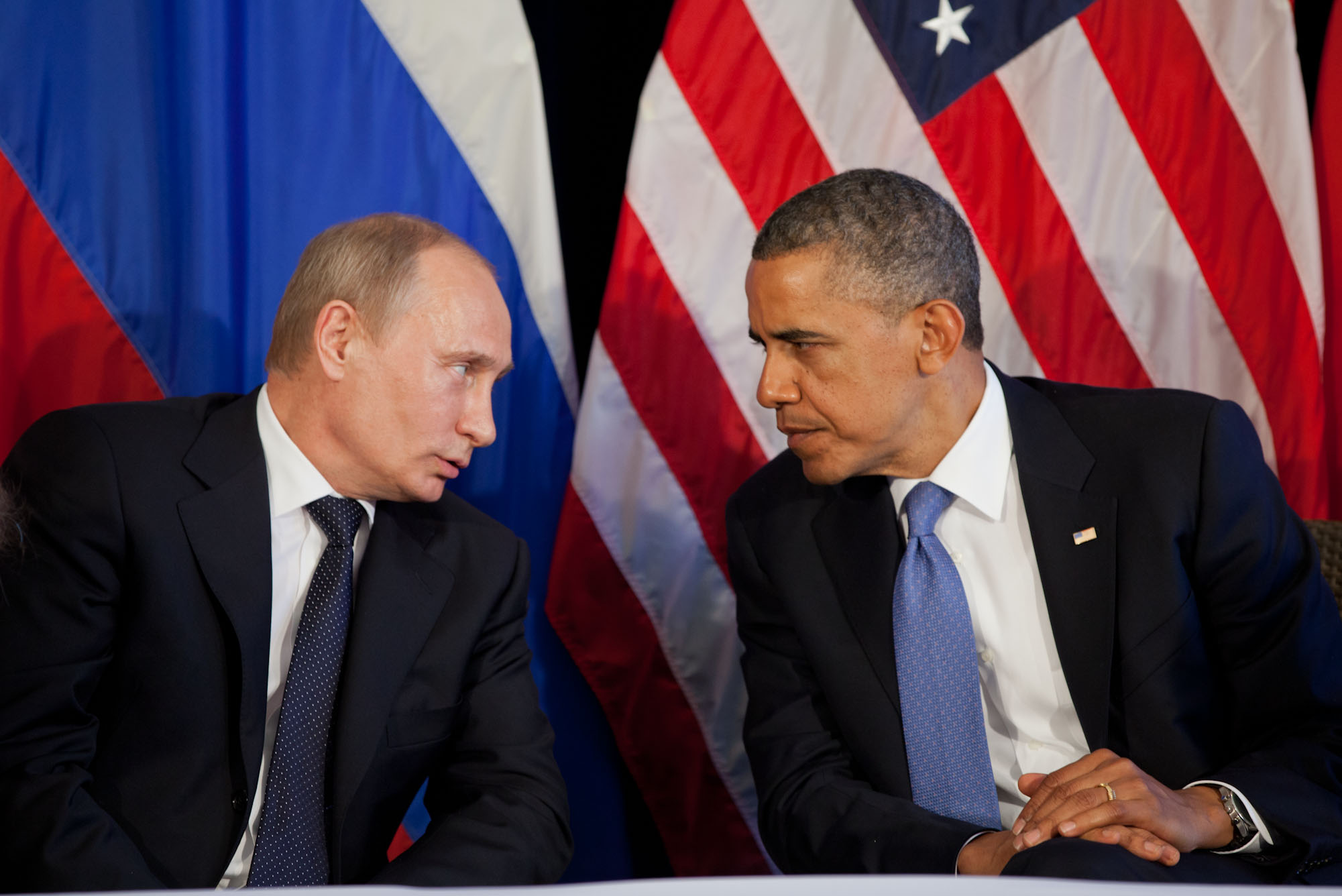
3. The Russians
Clinton will stress that the aforementioned email leaks are part of a Russian conspiracy to alter the course of the presidential election in favor of Trump, that their authenticity must be questioned, and that all these documents are being supplied by Russian hackers. Trump will simply repeat that he has never met Russian President Vladimir Putin but would welcome such a meeting, should he become president.
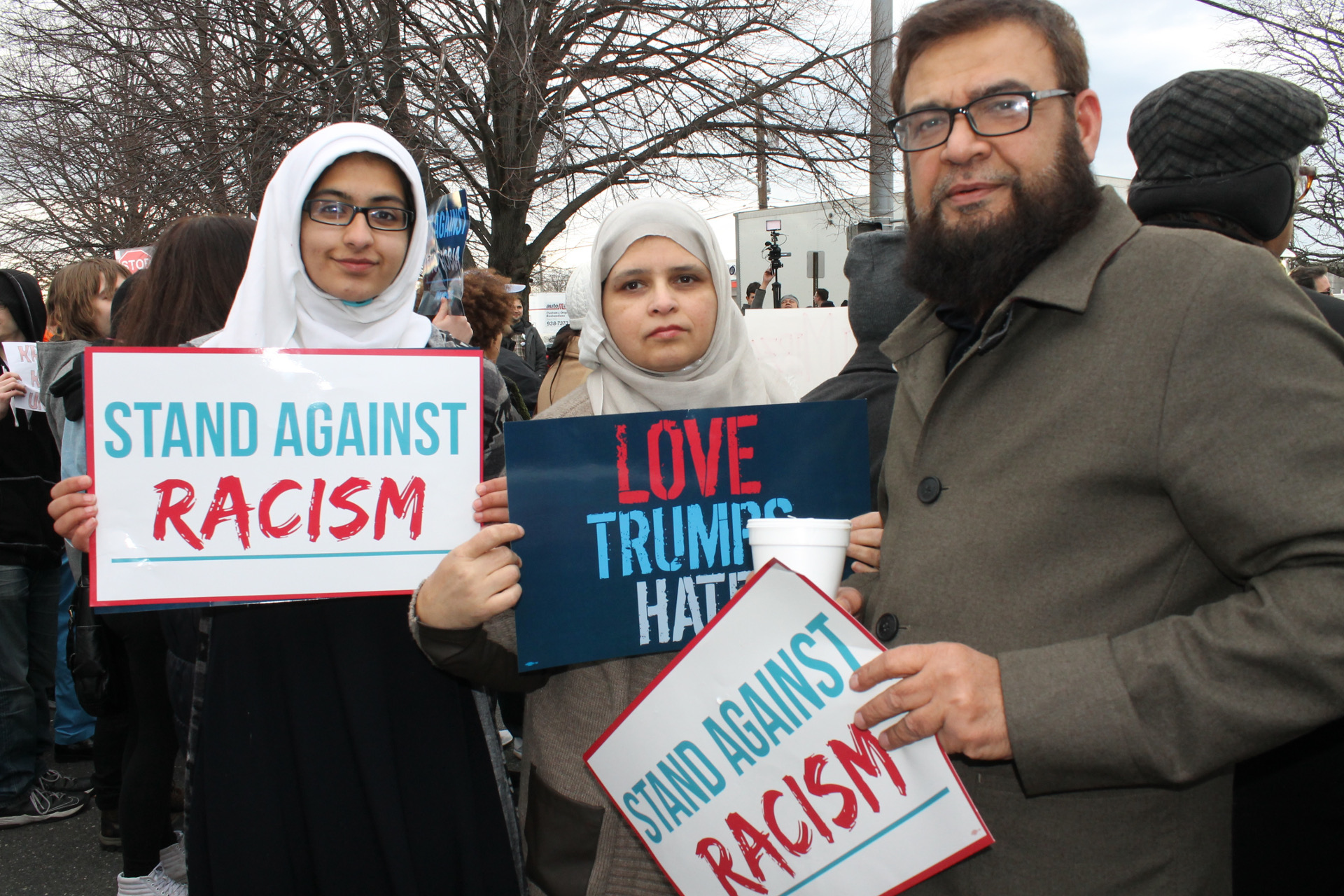
4. Muslims
Trump has been accused of Muslim-bashing. Beginning in the Republican primaries, he’s called for a complete ban on non-US Muslims entering the country, a Muslim database, surveillance of mosques, and got into a protracted tussle with the family of a slain US Muslim soldier. Most recently, his campaign manager described his platform as containing a so-called “Five-Point Plan to Defeat Islam.” What she probably meant was “Radical Islam,” a term Trump has consistently criticized President Obama and Hillary Clinton for refusing to utter. When the candidates were asked about Islamophobia in the second debate, Trump lamented that the Muslim community fails to weed out potential terrorists, failing to acknowledge that a friend of the Orlando nightclub shooter and the father of the recent Chelsea bombing suspect both expressed concerns to the FBI before either incident. Clinton will do her best to convince the audience she’ll protect American Muslims.
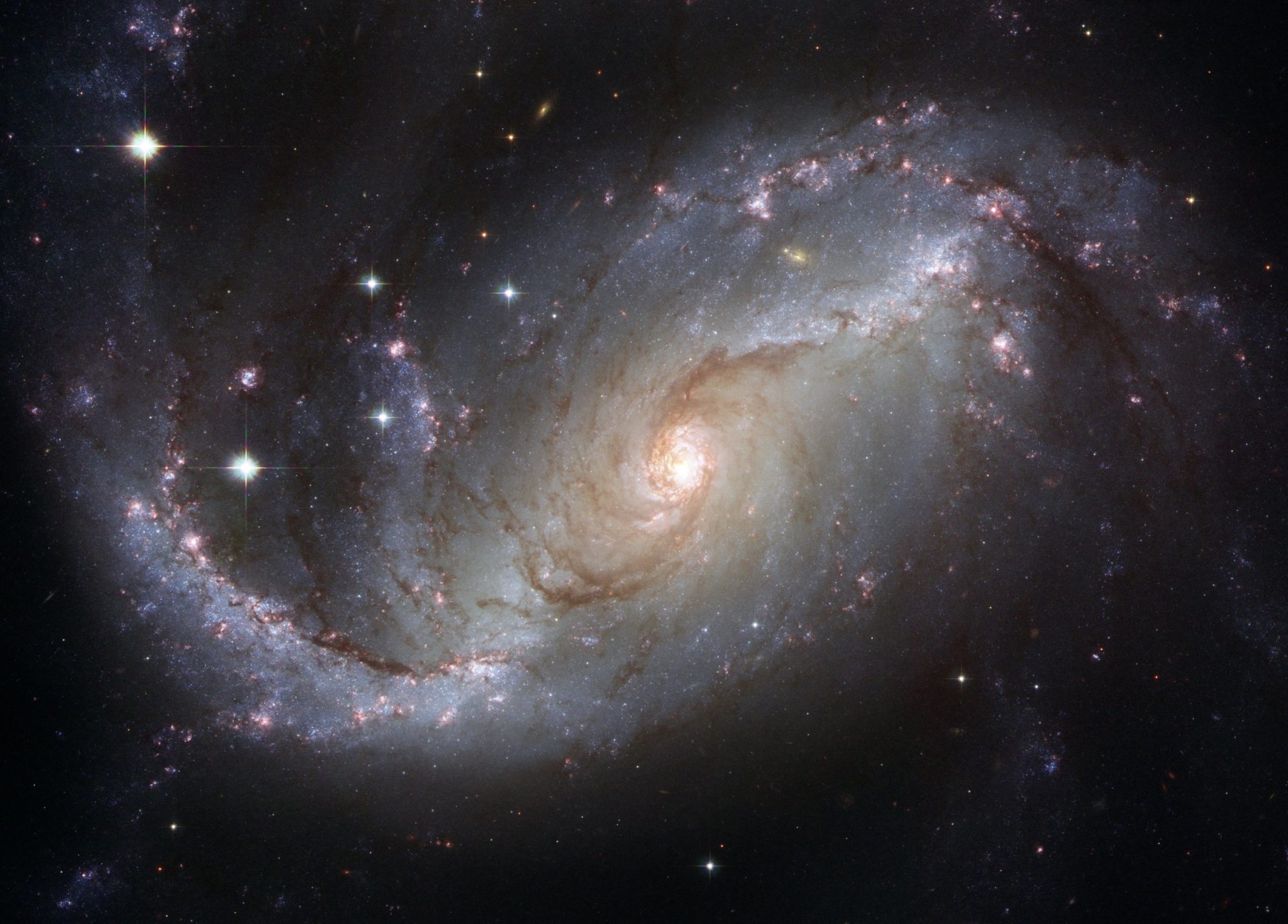
5. Extraterrestrials
Yep. It’s come to this. Although the existence of otherworldly lifeforms has not yet been injected into the debates by either candidate, the topic has been one of interest on the web recently due to whistleblower site WikiLeaks.com’ Oct. 7 publication of hundreds of emails involving Hillary Clinton campaign chairman and former Bill Clinton chief of staff, John Podesta, known as “The Podesta Emails.” What are some of those hacked emails about? Extraterrestrials and UFOs. Since Trump is tossing the kitchen sink at this point at Hillary, Podesta’s fascination with space aliens shouldn’t be ruled out from his scorched-earth agenda.
5 Things Donald Trump & Hillary Clinton Likely Won’t Discuss
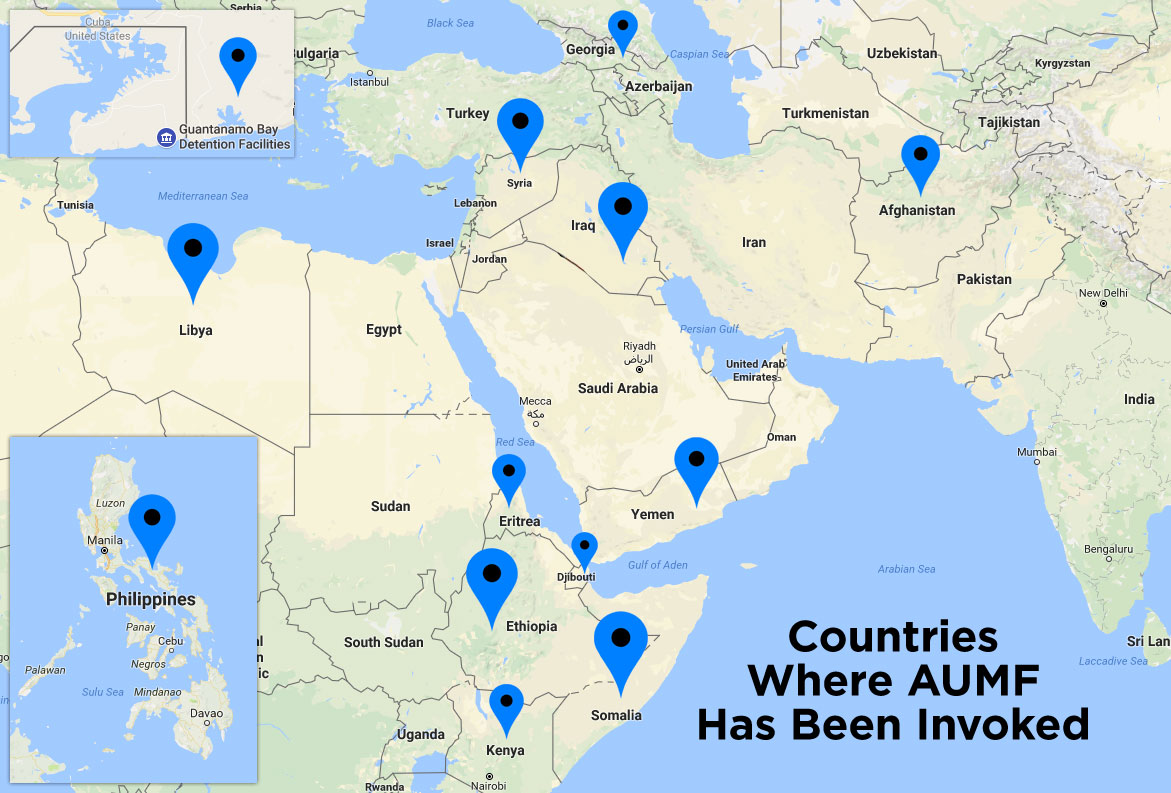
1. AUMF
Authorization to Use Military Force, or AUMF, was first adopted in 2001—three days after the Sept. 11, 2001 attacks—to give then President George W. Bush the authority to fight the terrorists responsible for the deaths of 3,000 Americans on 9/11, meaning al Qaeda. Since then, AUMF has been enforced to justify everything from drone strikes, conventional air raids, and the deployment of US Special Forces inside sovereign nations, all in the name of the 15-year “War on Terror.” A minority in Congress has advocated for repealing the 2001 AUMF in favor of new version singularly focused on the ISIS war, which would limit the president’s ability to conduct war wherever and however he or she sees fit. The responsibility to declare war falls on Congress, but lawmakers have yet to vote on the merits of the ISIS war, effectively giving President Obama cart blanche to fight ISIS and a handful of other terror groups across the Middle East and North Africa. Would the two candidates push Congress to repeal the 2001 AUMF? Our guess: probably not. But it’d be nice to hear it from their own mouths. As it stands, the War on Terror is the longest—and costliest—war in US history.
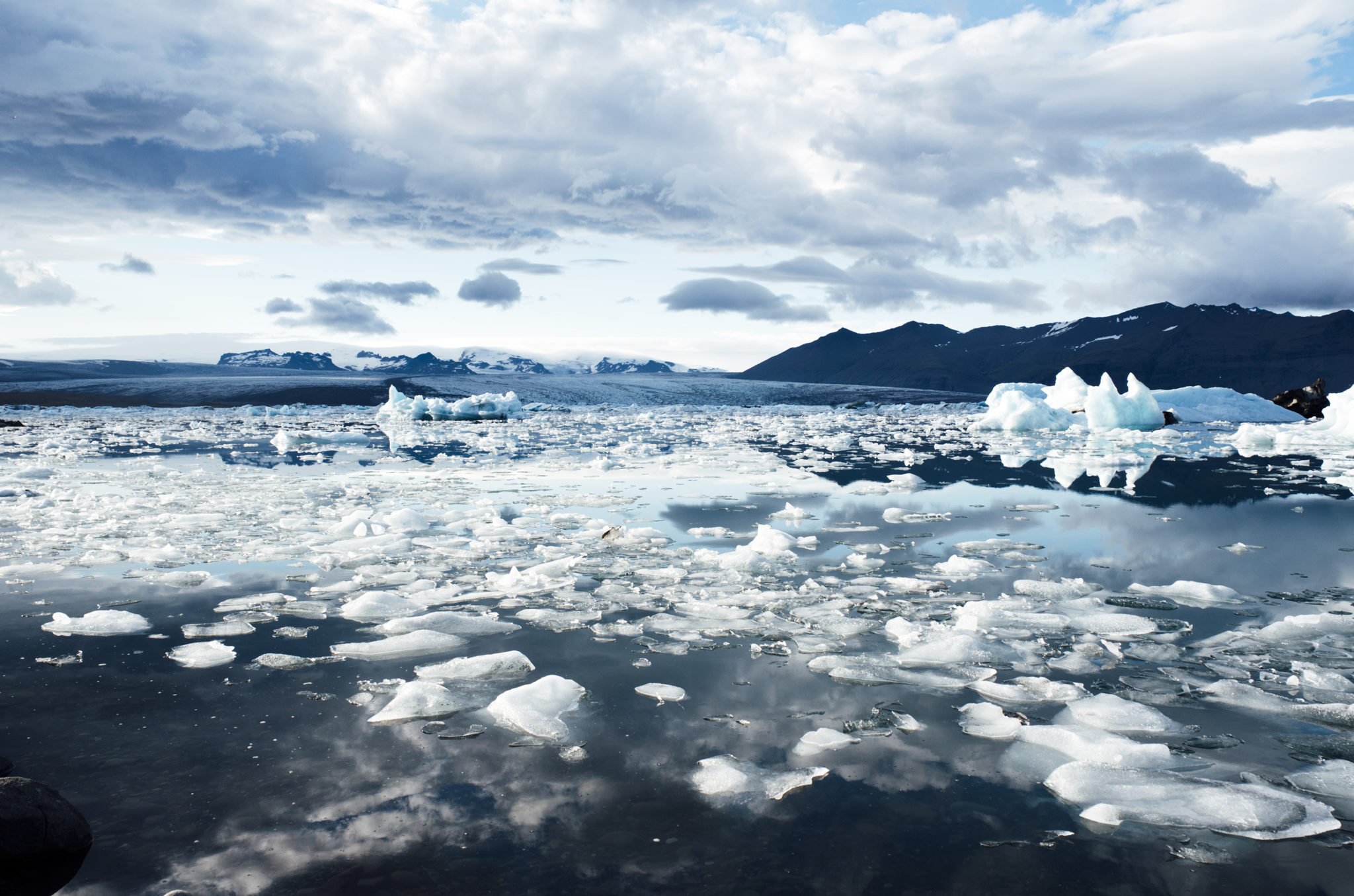
2. Climate Change
In a report released earlier this week, the United Nations warned in less than 20 years the number of people living in poverty will grow to 122 million from 35 million because of climate change. The report also noted that the already ambitious objective of eradicating hunger could prove even more difficult come 2030. “Changes will need to be made in a way that does not jeopardize the capacity of the agriculture sectors—crops, livestock, fisheries and forestry—to meet the world’s food needs.” In 2014, a coalition of retired military leaders, including former Secretary of Homeland Security, Michael Chertoff, and former Defense Secretary, Leon Panetta, released a report in which they warned of the security implications of climate change. “The nature and pace of observed climate changes—and an emerging scientific consensus on their projected consequences—pose severe risks for our national security,” they wrote. Trump has tweeted—and subsequently denied he tweeted what he tweeted—that climate change is a hoax perpetrated by the Chinese. Hillary Clinton has vowed to take on climate change. Don’t bet on them actually defending their position in this debate.
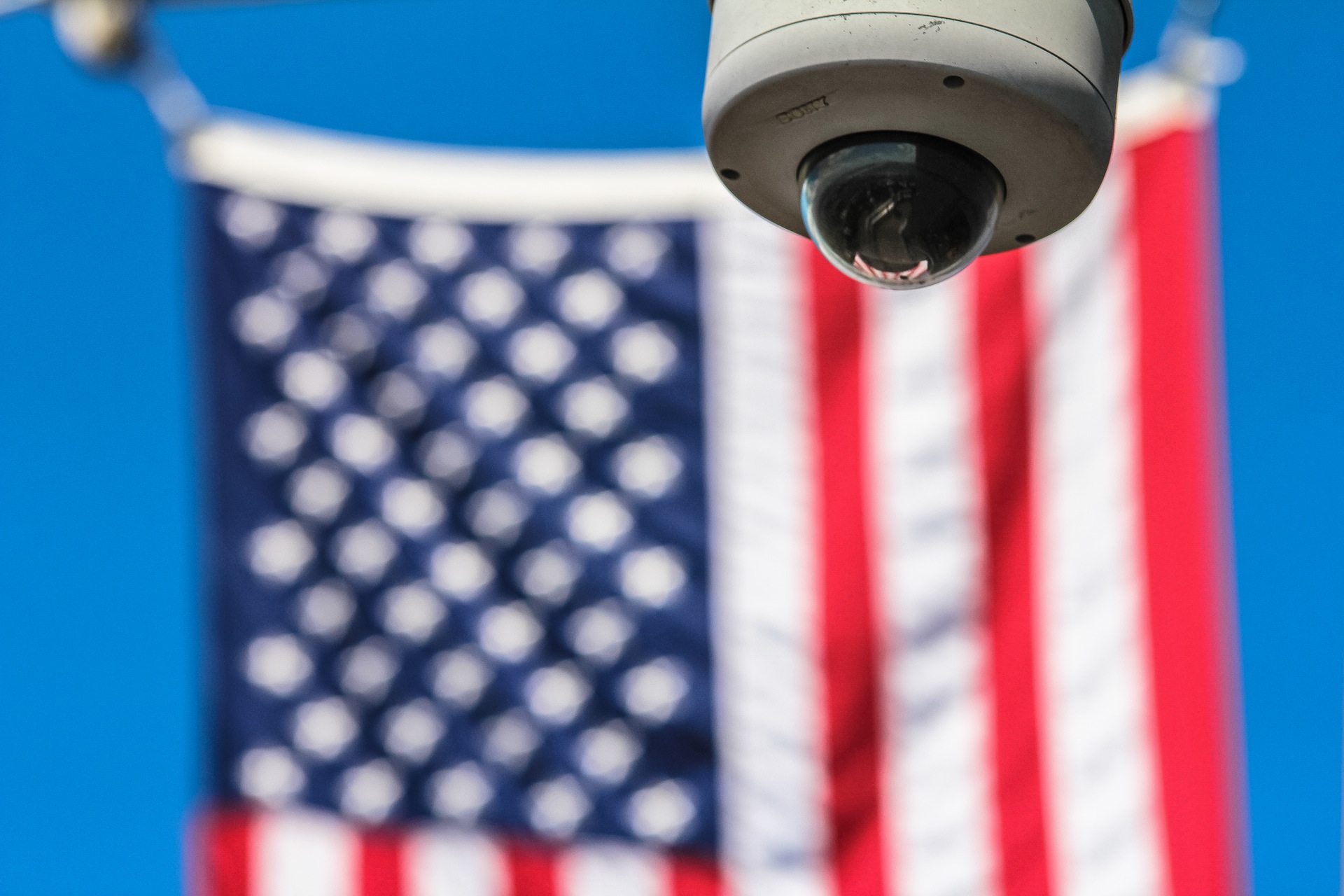
3. Surveillance
It’s been three years since NSA contractor Edward Snowden revealed details of the spy agency’s widespread surveillance network. Nearly one year after the leaks, Congress passed the USA Freedom Act, which set restrictions on the NSA. Still, with emerging technologies and ubiquitous social media sites, Americans are more than ever prone to snooping—perpetrated by either government agencies or nefarious groups hoping to profit off of stolen personal information. Come 2017 Congress will have to vote whether to reauthorize Section 702 of the FISA Amendment Act, which, according to the Electronic Frontier Foundation, a privacy advocacy groups, has been used by the NSA to justify “mass collection of phone calls and emails by collecting huge quantities of data directly from the physical infrastructure of communications providers.” Digital privacy groups have called on Congress to simply allow Section 702 to expire at the end of 2017. Where does Clinton and Trump stand on surveillance and privacy rights? Hmmm.
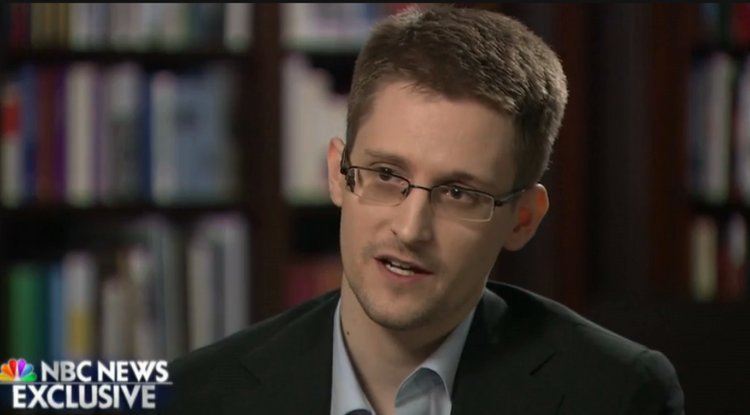
4. Whistleblowers
The Obama administration has prosecuted more whistleblowers under the World War I-era Espionage Act than all previous presidents combined. The Obama Justice Department even tried to compel an investigative reporter with The New York Times to reveal the identity of his source in a leak case before acknowledging the reporter, James Risen, would under no circumstances burn his source. In response, Risen called Obama “the greatest enemy to press freedom in a generation.” So how would the two candidates deal with potential leaks? Trump has already pledged to weaken libel laws to make it easier to sue the press, and has repeatedly maligned the news media at his rallies and suggested the media is part and parcel of the Clinton campaign, and furthermore, associated with a secret international cabal single-handily rigging the election in the Democrat’s favor. While she was Secretary of State, Clinton forcefully condemned the leaks, saying, “we should condemn in the most clear terms the disclosure of any classified information by individuals and organizations which puts the lives of United States and partner service members and civilians at risk.” WikiLeaks, which published the trove of classified documents, has re-emerged as an adversary to Clinton, publishing hundreds of emails from her presidential campaign and the period in which she was the nation’s chief diplomat.
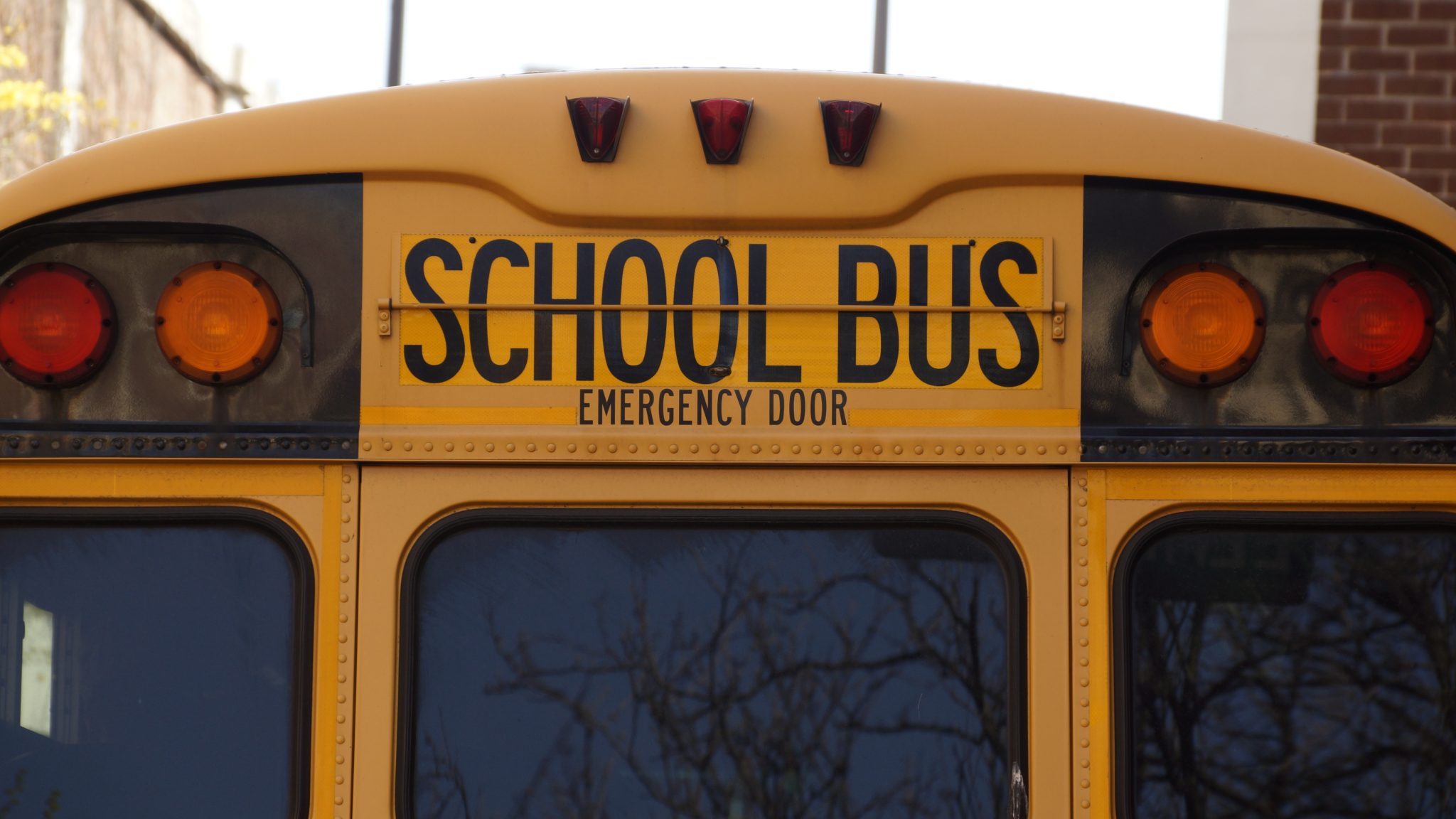
5. Education
If you were to ask Long Islanders to rank which issues concern them the most it’d be impossible to imagine education not falling in the top-5, behind taxes, taxes and taxes, of course. Long Island parents are at the forefront of a movement committed to dismantling national Common Core standards. Education issues inspire passionate discussions because it affects countless Americans’ everyday lives. Yet there’s been no talk at previous debates about what each candidate would do to improve the education system in America. During the Democratic primary the cost of college became a major topic. Yet again, presidential candidates are not discussing secondary education either. Educators: don’t hold your breath.
What you’ll need to get through the debate:




